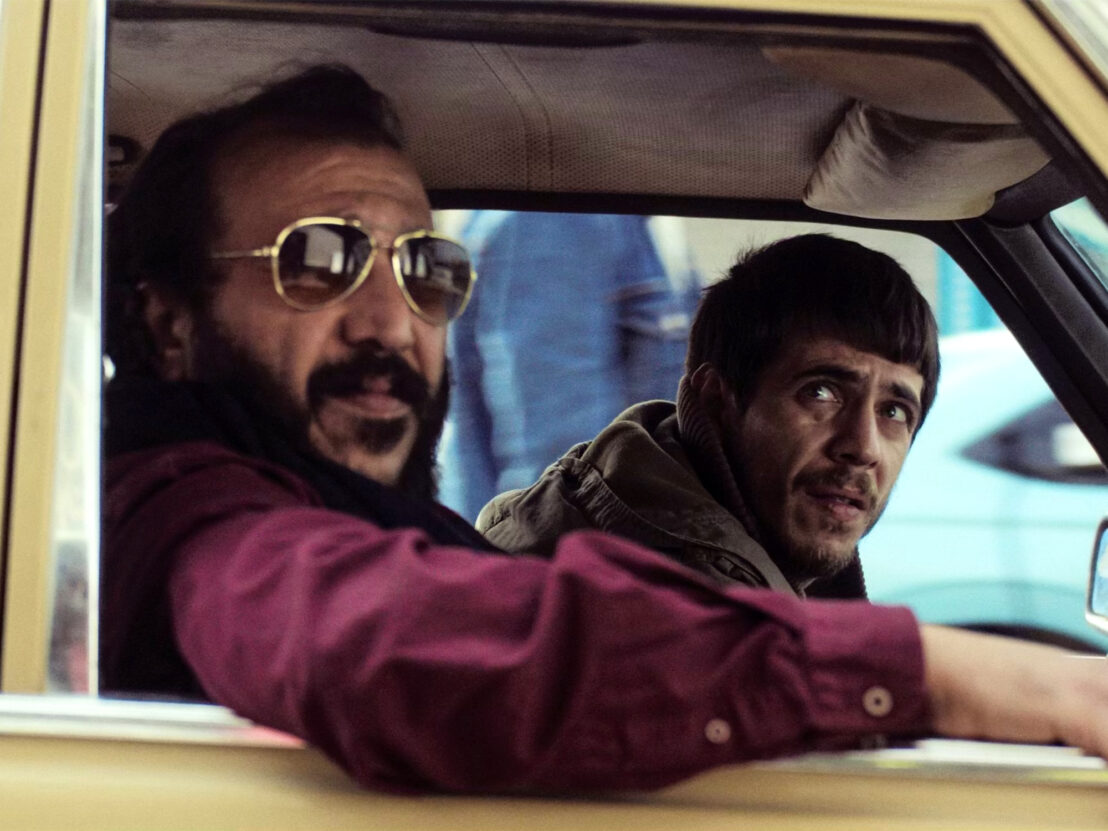
Arab and Tarzan Nasser's thriller transports us to 2007, where two friends running a drug dealing business out of a falafel cart soon come into conflict with a corrupt police officer.
As of 2007, the Levantine nation of Palestine had already been under Israeli occupation for exactly forty years. This precise era is where twin Gazan directors, Arab and Tarzan Nasser, opt to transport us to for their latest cinematic homage to their unlawfully besieged home, Once Upon A Time In Gaza. As with their previous forays into filmmaking, the brothers shot the film in Jordan, a neighbouring country and state of refuge for many displaced Palestinians, including the directors who fled Gaza in 2012. This removal from the strip is for the sake of safety, but also has the effect of evoking a version of the city that was in no way perfect, but now fails to exist entirely. The tangible longing and affection for their motherland serve as a reminder that the Palestinian people will continue to persist and fight for their liberation.
Osama (Majd Eid) owns a seemingly inconsequential falafel shop, which frequently operates under the supervision of his only employee, Yahya (Nader Abd Alhay). The fun-sized restaurant serves up fluffy stuffed pita breads on freshly torn sheets of newspaper, inked with headlines detailing the radical resistance movement Hamas’s rise to power, a retaliatory result of the grotesque Israeli occupation.
However, falafel isn’t their only offering. Despite his hesitation, Yahya follows instructions to tuck aluminium tabs of crimson red pills, which Osama sources through forged prescriptions and pharmacy crawls, underneath the deep-fried snacks in a select few sandwiches, until a run-in with Abou Simi (Ramzi Maqdisi), a corrupt high-ranking police officer in the narcotics division, has fatal repercussions.
Two years later, Yahya remains haunted by the murder of his only companion and leads a solitary existence, until he is scouted by a director (Issaq Elias) poised to create an 80s-esque hyperstylized action flick turned propaganda project titled The Rebel. Yahya is an unassuming choice to play the titular rebel and quickly becomes a symbol of the revolution. He’s painfully shy and has little assertiveness, but his lack of self-assurance makes him a perfectly moldable figure to be the Ministry of Culture’s mouthpiece.
At times, the balance of theatricality and dark comedy in Once Upon A Time In Gaza becomes reminiscent of a medium known across the MENA region as Musalsalat – soap operas (most commonly produced in Egypt) that tackle social and political commentary, which air nightly throughout the month of Ramadan. The melodrama derives from rich cultural specificity that lends itself well to this tale of love, loss, and unrest.
The film is divided into these two solid chapters, but they don’t quite click together to become a singular cohesive piece. Nevertheless, the creative swings taken by the Nasser Brothers to craft something that breaks free from the country’s gloomy modern subtext and explores a reality beyond the ongoing genocide are something to be genuinely admired.
That’s not to say that it evades discussing the decades of suffering which Palestinians have been subjected to. Still, it finds ways to weave webs of subtext, rather than becoming a supercut of fetishized tragedy intended for Western consumption. Despite the seemingly never-ending cycle of devastation and revolution, the Nasser Brothers refuse to let their resilience and optimism for the future slip, concluding with the hopeful message that one day it will end.
To keep celebrating the craft of film, we have to rely on the support of our members. Join Club LWLies today and receive access to a host of benefits.
Published 21 May 2025